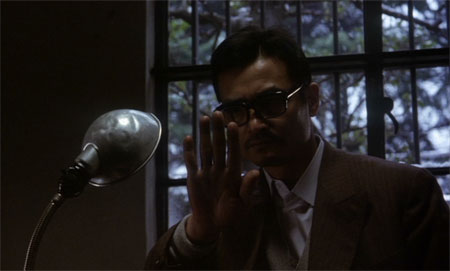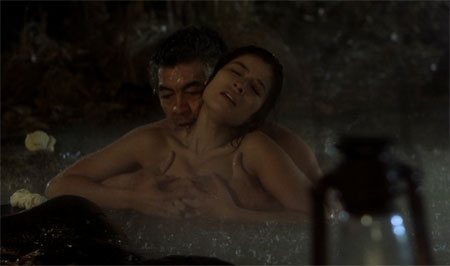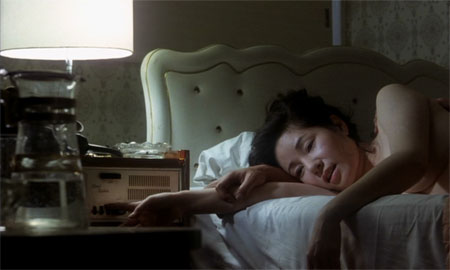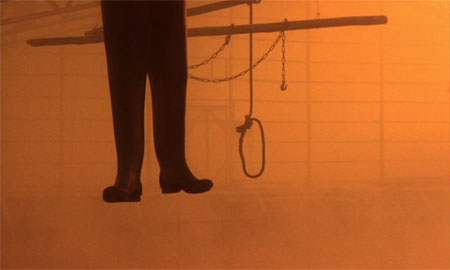A part of this viewing list: Criterion Collection Spine #384: Shohei Imamura’s Vengeance is Mine.

This film was much more graphic than I expected it to be. It also has some great sex scenes. I’ll get into what I mean by great a bit later. The film is based around an actual Japanese serial killer whose early life and strict Catholic upbringing seem to be the main motives that drive him to his wildness. The Catholic aspects aren’t prominent, but are still quite important. Their uniquely Japanese exposition was a bit reminiscent of Shusaku Endo’s Silence, but that might be confirmation bias since those are the only two things I know about that are Japanese and Catholic. Basically what I mean by “uniquely Japanese exposition” is that their Catholicism is more Buddhist than in the West. This might seem obvious, but it is this combination that enables the serial killer Iwao Enokizu’s father to accept the suffering that he goes through so readily.

This acceptance, at least from the film’s point of view, is what gives Iwao an early rebelliousness to what he sees as his father’s cowardice. The film’s continuity continually shifts between the past, the further past and the present to construct a tale instead of the more documentary feel that a linear plot would have exhibited. Imamura seems to have been meticulous in his arrangements; we learn of Iwao’s criminal abilities over and over again before we finally see them inaction, yet they are still startling even then. Iwao’s monstrosity highlights the dark desires in all of the other characters as well. The result is the filmic equivalent of a mass Confession, all sins exposed, but with a bitter [Buddhist] lack of absolution. There are attempts at atonement, but no forgiveness.
The sex scenes are the best example of the dark desires, and the film is full of them. There are two particularly hot ones: the first between Iwao’s father and Iwao’s wife in a hot spring during the rain [they basically just grope each other before guilt overwhelms] and the second between Iwao and his last lover; he talks about his murders while they get it on, and that really turns on his lover. I say these scenes are hot because their obvious passions have a dangerous emotional gristle; a hint at the dark thing that sits next to each of their souls.

Iwao’s cruelty is so fundamental that even the tiny struggles of his good nature become twisted by cunning and malice. At times he improvises excellent haiku that are extremely surprising in their context. There are reaffirmations that he loves his mother throughout his criminal life, and at times he makes small gestures to a sick old woman who reminds him of her. But, he uses these gestures to get into the pants of the woman’s daughter, and muscles into their lives. It turns out that the old woman killed her husband many years ago, so she becomes an interesting mentor to Iwao. Through her questioning, we learn that Iwao hasn’t killed the person he wants to, and it is fairly easy to guess that this is his father. The foreshadowing and guilt-wearing resignation comes hard and fast toward the end of the film, for all parties. There is little, if anything, light about this film, but for those who like to take unflinching looks at their own weakness and where it could lead, it is a great resource.

- Criterion Essay by Michael Atkinson
- Movie Martyr Review
- Midnight Eye review
- DVD Times review [good stills]
- Jasper Sharp review
- Shohei Imamura interviewed about the film: Part 1, Part 2.